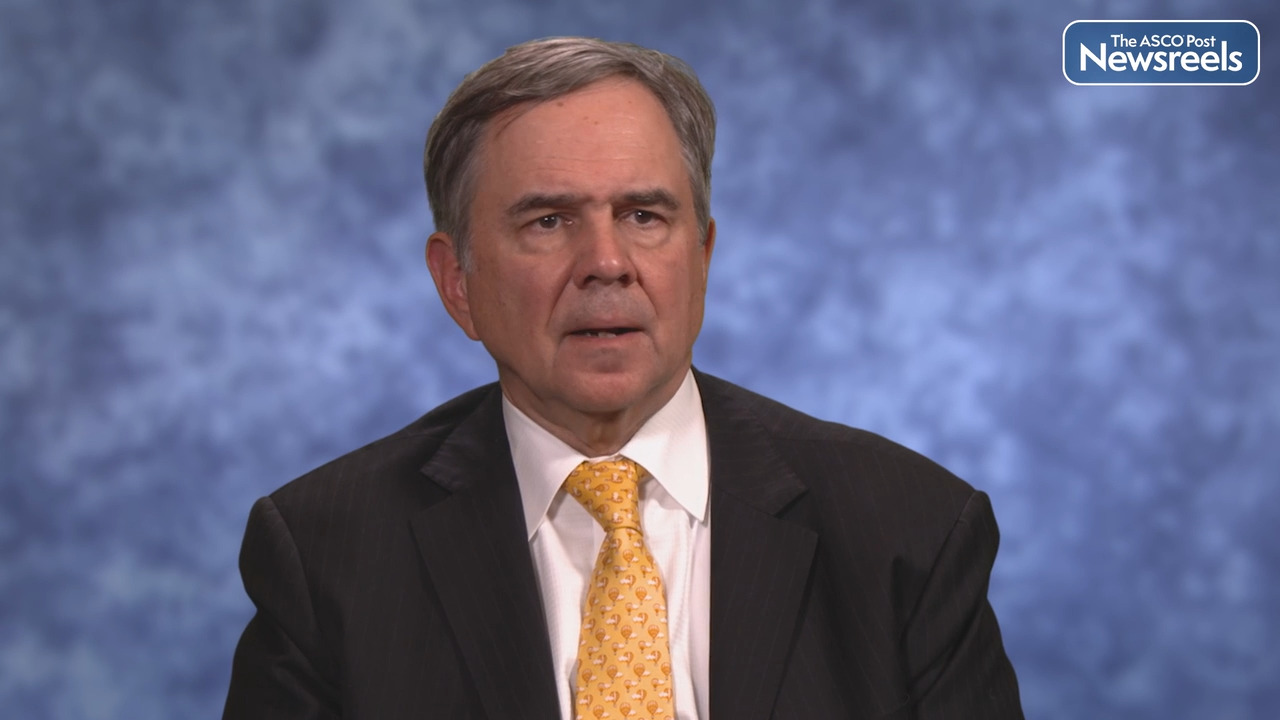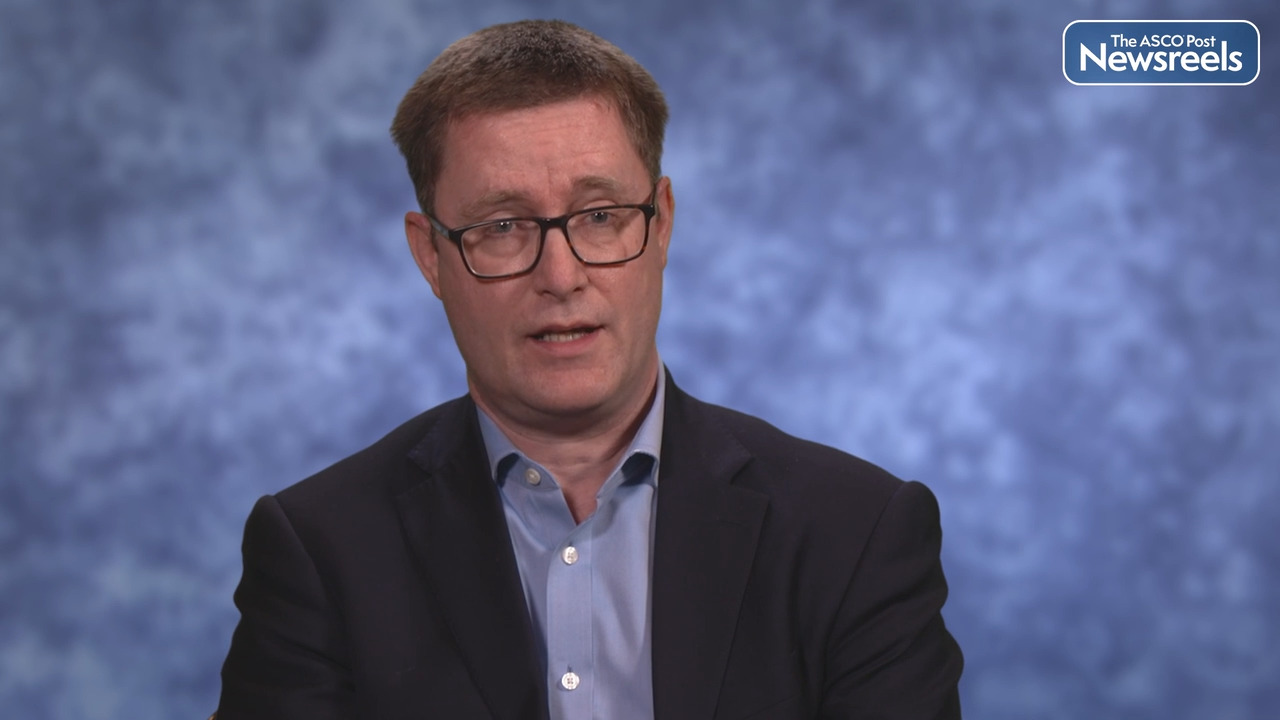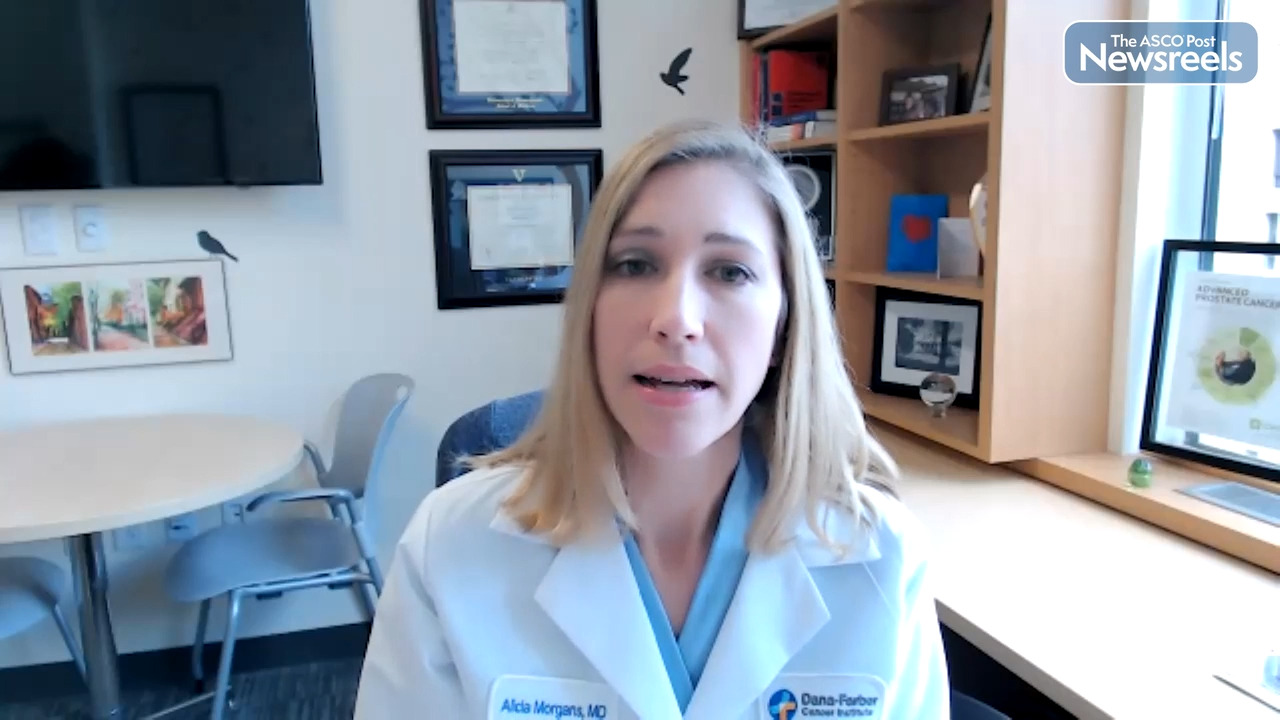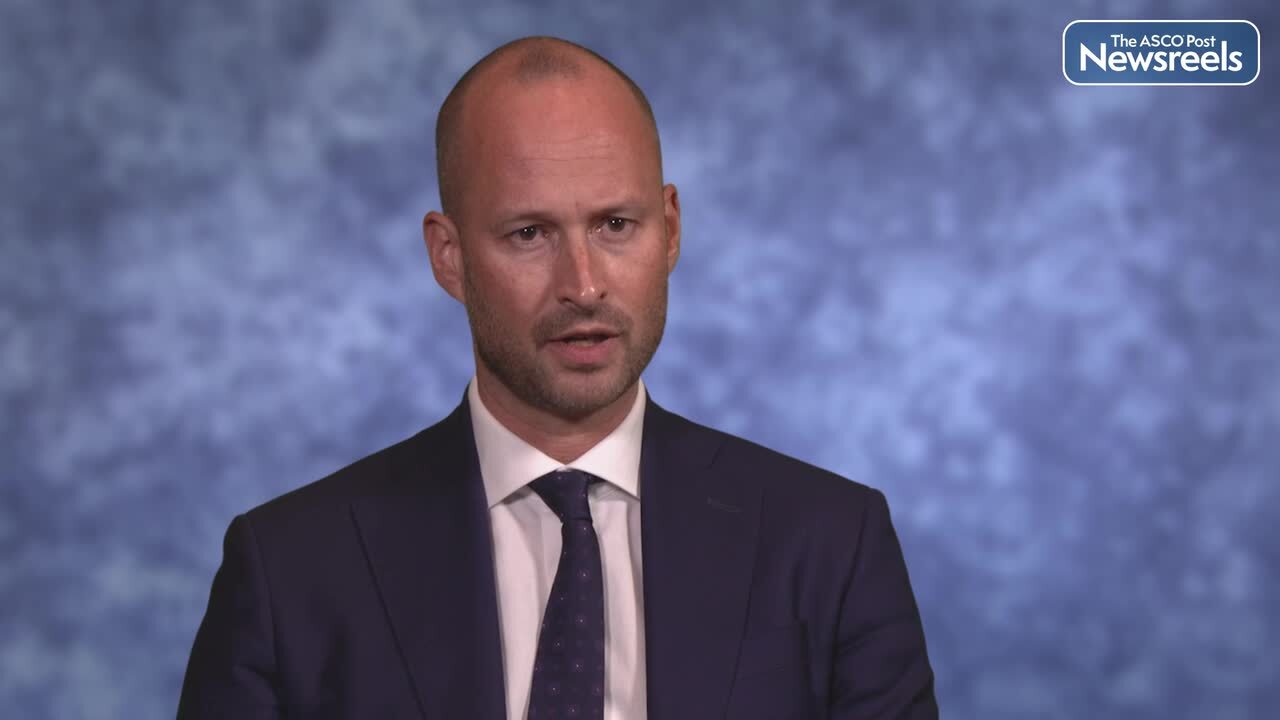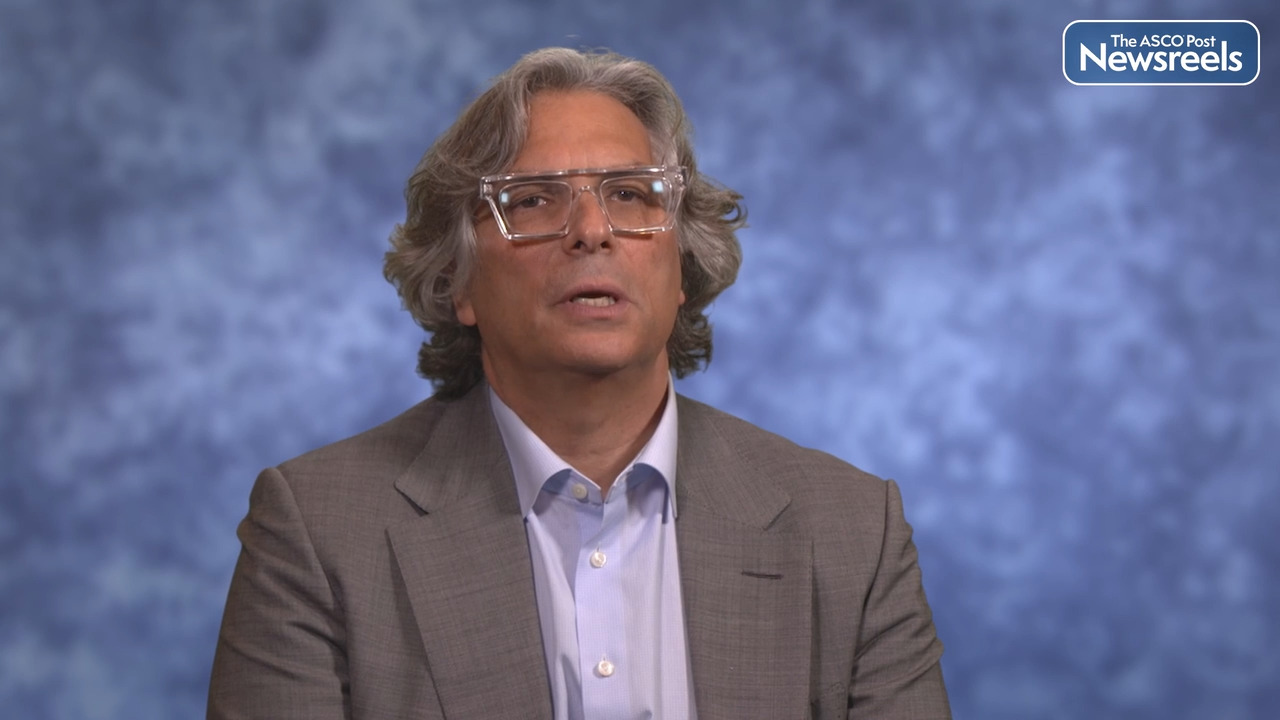Matthew R. Smith, PhD, MD, on Prostate Cancer: Phase III Data on Darolutamide, Androgen Deprivation, and Docetaxel
2022 ASCO Genitourinary Cancers Symposium
Matthew R. Smith, PhD, MD, of Massachusetts General Hospital Cancer Center, discusses overall survival findings from the ARASENS trial, which assessed the efficacy of the androgen receptor inhibitor darolutamide vs placebo in combination with androgen-deprivation therapy and docetaxel for patients with metastatic hormone-sensitive prostate cancer (Abstract 13).
The ASCO Post Staff
Daniel P. Petrylak, MD, of Yale Cancer Center, discusses new data on the antitumor activity of neoadjuvant treatment with enfortumab vedotin-ejfv monotherapy in patients with muscle-invasive bladder cancer who are not eligible for cisplatin.
The ASCO Post Staff
Simon J. Crabb, PhD, MBBS, of the Southampton Experimental Cancer Medicine Centre, discusses data from the ATLANTIS trial, in which the authors hypothesized that switch maintenance therapy with the PARP inhibitor rucaparib, in patients who have derived clinical benefit from first-line chemotherapy, may improve outcomes for those with metastatic urothelial carcinoma that harbored a composite biomarker for DNA repair deficiency (Abstract 436).
The ASCO Post Staff
Alicia K. Morgans, MD, MPH, of Dana-Farber Cancer Institute, discusses findings from the largest digital survey conducted in patients with prostate cancer, allowing identification of unmet needs in the patient journey. Preliminary data suggest that lower rates of screening may correlate with higher rates of symptoms at diagnosis and potentially later-stage diagnosis.
The ASCO Post Staff
Axel S. Merseburger, MD, of the University Hospital Schleswig-Holstein, discusses results from a phase IIIb study of chemotherapy-naive patients with metastatic castration-resistant prostate cancer who have been treated with docetaxel plus prednisolone and experienced disease progression on enzalutamide. The data suggest that continued enzalutamide plus docetaxel improved progression-free survival compared with placebo plus docetaxel (Abstract 15).
The ASCO Post Staff
Neil E. Fleshner, MD, MPH, of the Princess Margaret Cancer Centre, discusses phase II results from the ACDC-RP trial, which indicate a significant tumor response to neoadjuvant abiraterone acetate plus prednisone and leuprolide, with or without cabazitaxel, in patients with high-risk prostate cancer. Those who exhibited either a complete response or minimal residual disease experienced higher rates of progression-free survival. According to Dr. Fleshner, genomic efforts are underway to determine predictors of response.
